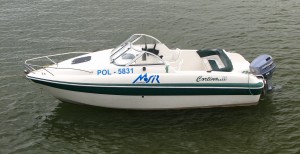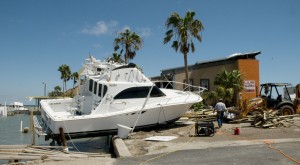Purchasing and owning a boat or personal watercraft in Maryland can bring hours of joy and entertainment to yourself, family and friends. Whether you’re at Deep Creek Lake, the Chesapeake Bay, or any of the hundreds of other areas, being out on the water is a great experience. Registering your craft is required. Cities with the highest percentage of boat-owners are Baltimore, Silver Spring, and Germantown. Different types of vessels that can be covered include charter and performance, houseboats, sailboats, bass boats, runabouts, yachts, and mega yachts.
Although there is no state law (or pending legislation) that requires you to purchase insurance coverage, it makes good financial sense to obtain liability or comprehensive coverage to protect your investment, assets, and possibly financial ruin. If equipped with mechanical propulsion, the boat is required to be registered with the Department of Natural Resources. The Department also must be notified within 15 days if the boat is bought, traded, or sold. Written verification may be required.
You’re not just protecting your investment. You’re also ensuring you won’t spend the rest of your life paying for a preventable mistake. Hurricanes, wind storms, ice and freezing damage, and theft can happen at any time, so it’s important to be properly covered. Unexpected weather changes can also cause severe damage. And unfortunately, vandalism and theft occur frequently to boats and vessels. Proof of coverage may be required at specific marinas and docks.
Liability And Physical Damage Protection Needed
If you are financing the purchase, or using the craft as collateral on another loan, you will have to obtain liability and physical damage. There may be maximum deductibles that can be selected and specific mandatory coverage that must be included in the policy. If you do not comply, a “force-place” may be enacted, that protects the financial institution’s interest, but not your own. Therefore, you will pay for a policy that gives you no benefits. A termination charge may also apply.
Also, your policy may not allow you to navigate in all areas, and may also limit the months you can operate the boat. It’s important to review your policy each year and determine the areas of navigation that are covered. If no local areas are available, it may be wise to consider keeping the boat near your favorite area of service.
Popular State Parks for boaters include Assateague, Big Run, Deep Creek Lake, Elk Neck, Fort Frederick, Greenbrier, Gunpowder Falls, Janes Island, Martinak, Monocacy River, New Germany, Patapsco Valley, Piney Run, Pocomoke River, Point Lookout, Rocky Gap, Sandy Point, Smallwood, St. Mary’s River, Susquehanna, Tuckahoe, and Youghiogheny Wild River. The Maryland Boating Act of 1960 helps protect persons that utilize these Parks. Revenue earned from boating activities are utilized exclusively for maritime and boating expenses.
NOTE: Don’t forget to review our Maryland auto insurance rankings, since you need a vehicle to pull the boat! Most carriers offer a discount when you bundle vehicles, homes, and other ancillary products. The premium reduction is generally 5%-15%. This applies to all policies, and many watercraft options are available. An excess-liability policy can also be easily purchased. The cost of this important benefit is not significant, and your assets will be much better protected.
Tips When Comparing Plans
Liability – Protection for other boaters if you have an at-fault accident is critical. Repair and replacement of property, along with coverage for medical bills and lost wages is provided. Many different liability limits are offered.
Area Of Navigation – Understand the area of coverage for your policy. Inland and coastal mile limits should be reviewed.
Emergency Benefits – Battery replacement and recharging, gasoline, oil, and other assistance is typically provided.
Collision Coverage – Replacement or repair of your boat is often needed. The trailer and equipment that is permanently attached is also covered.
Medical Expenses – A boating accident will likely result in significant medical bills. Yourself and passengers are covered, and typically the range of benefits is between $1,000 and $10,000. Private and Group coverage can also be used.
Personal Items – Clothing, phones, fishing and scuba equipment, and other items can be easily stolen or lost in an accident.
MD Boat Policy Options
Separate Policy
By purchasing a separate policy, you can choose among many companies that specialize in this type of coverage. More options will be available which allows you to customize benefits and deductibles to better meet your specific needs. Many property and casualty carriers offer boat and other ancillary products.
In addition to the boat itself, equipment, personal belongings and a trailer can be included on one policy. Motor coverage is more flexible with a wide variety of deductible choices. Additional items, such as anchors, fire extinguishers, life preservers, first-aid, kit, seat cushions, oars, batteries, bilge pumps, masts, tarpaulins, and ship-to-shore radios are often covered, but there can be variations and limitations. For example, some personal property, such as food, books, clothes, and fishing equipment may not be 100% covered.
Personal liability and medical payments are the most important component of the policy. It protects the boat owner and family members while legally operating the vessel, and will also pay for medical bills to others caused by accidental means. Several different limits of liability are available. A personal umbrella may be used in conjunction with this type of policy. Existing in-force Marketplace or employer-provided healthcare benefits will cover medical expenses, but only to yourself.
Additional covered items may include emergency services, total loss and accident wreck removal, and needed repairs following a loss.
If you own a yacht (27 feet or longer), additional coverage and increased liability benefits may be needed. A separate “personal excess liability” policy should be considered, to help protect other household assets. Policies can offer benefits from $1 million to $5 million (and higher). Primary, rental and investment property, vehicles, motorcycles, RVs, motor homes, and mobile homes can also be included.
Homeowner’s Policy
For smaller boats, adding the vessel to your homeowner’s insurance is often quicker, cheaper, and the best option. If the length of the boat is less than 25 feet, and the motor is an outboard with about 20 horsepower, rates are very inexpensive. However, coverage may be limited with low maximums. If a total loss occurs, you may not be able to replace the boat. Sailboats shorter than 26 feet may be able to be added to a homeowner’s policy.
An official endorsement is also available from many carriers. It is added to the homeowner’s policy and often covers boats that are longer or have more power motors than mentioned above. The “endorsement” option may also include medical payments if others (non-family members) are hurt, and liability protection in the event of a lawsuit involving property damage or bodily injury. The limits you choose can be customized to match the boat and your budget.
A navigational waters limitation may be imposed that restricts the areas your boat can operate. Any operations outside of a designated area can result in a termination of benefits. Policy coverage varies, so it is important to review the specifics with the broker. Also, keep updated on any amendments that may be added to the policy by your carrier.
NOTE: An experienced broker or website such as ours, can be extremely helpful when determining if an endorsement is the best option. Although cost should be considered, the protection of your assets, and physical damage to the boat are more important factors. Not all companies offer the specific type of policy you may need. Often, it is more cost-effective to insure your watercraft with a carrier that does not provide coverage for your other property and casualty products.
How Is The Rate Calculated?
Boat insurance rates in Maryland are based on many underwriting factors. Although not all carriers determine prices in the same manner, the following criteria are typically used by the major companies:
Deductible – Options from $100 to $5,000 are generally available. Higher deductibles reduce the premium. If you rarely use the boat, and for short distances only, a higher deductible is much more cost-effective.
Liability Limits – Don’t skimp here since spending $10 extra may save you $100,000. Also, consider a personal umbrella rider.
History Of Claims – If there have been no claims, you’ll likely receive a discounted price. If you have submitted multiple claims within the last 24 months, you should not consider changing companies. The best rates are offered when there have been no submitted claims within the last 36 months and all operators have at least five years of experience operating boats.
Boat Age And Dimensions – Bigger and/or newer boats will be more expensive. The length is one of the biggest factors in the rating process. Custom-built and special-order vessels will also cost more to cover.
Value – Naturally, the higher the market value, the more costly coverage becomes. Luxury yachts often require a specialized coverage.
Purpose And Use – How will it be used and how often? Will you be going out-of-state or mostly local? Are you experienced in those specific conditions? Are you close to large bodies of water or lakes, or do you have to drive 500 miles to find suitable locations? The navigational area must be known by the underwriters.
Boating Experience – Just like an auto insurance policy, the more years of experience you have on the water, the lower your premium will become. Of course, major violations (DUI for example) could cause a carrier to deny coverage. License suspensions and/or multiple at-fault accidents will also increase the premium.
Engine Type – Newer and more powerful engines cost more, and are more expensive to insure. The amount of horsepower and type of engine will impact the cost of coverage.
Housing – Is it kept outside at night and unlocked? Or is it kept inside a locked garage or storage facility? Also, have there been any recent theft or vandalism claims while the vessel was in storage?
Courses and Extra Training – Many carriers offer discounts for online (and in-person) courses that are completed and documented. Your premiums could reduce by as much as 20%, depending on the insurance company. You can also complete multiple courses to maximize your discounts.
Credit Score – Several carriers may offer a discount for excellent credit.
Additional Discounts – Many items, such as fire extinguishers, safety skills training, ship-to-shore communication, gasoline fume detector, diesel engine, hybrid construction, idle assisted steering, and owning a home will help reduce your premium. Lengthy experience operating boats also helps. Also, if you are the original owner, an additional reduction may apply. Completing a boat safety course can also reduce the rate.
How Are Claims Paid?
Typically, a police report is required for fire, vandalism, theft, accident, and related claims. If you are negligent, of course, your liability protection will pay the damages (up to your limits) to the impacted party. You may also own a separate personal umbrella liability policy that will provide additional protection if the damages exceed the limits of your current boat policy. Generally, additional non-commercial coverage can be purchased in increments of $250,000 to $5 million. This type of policy is often bundles with other ancillary products, such as investment property, RVs, motor homes, and snowmobiles.
Actual Cash Value (ACV) Vs. Replacement Cost Value (RCV)
ACV is very common and pays you the current value of the boat at the time of the loss, minus the depreciation. For example, if the purchase price was $20,000 three years ago, you may receive $14,000 ($20,000 cost new minus $6,000 of depreciation. Older boats will be charged much higher depreciation amounts. NOTE: Not all claims are total losses, including hail and lightning damage. A “stated value” or “agreed value” may also be a settlement option.
RCV is the “replacement cost value” and represents the cost to replace the boat at the time the claim was submitted. You may also be offered another boat that is similar in value, although this is rare since availability is typically a problem. If the offer is extended to you, it’s imperative to hire an experienced mechanic to complete a full inspection. If the condition of the vessel is a concern, do not accept the offer. Note: The “agreed value” is sometimes used when at the time the policy was issued, a stated amount of coverage is assumed, regardless when the total loss occurs.
Coverage for the hull can vary, depending upon the carrier and type of policy. Generally, private and commercial policies provide benefits for direct physical and accidental loss or damage, along with any applicable salvage charges. Loss caused by a latent defect is also covered on some policies. Direct and sudden events are usually included in policy benefits, subject to a possible deductible. Damages to your own boat caused by negligence of the boat owner are never covered.
Excess Or Surplus Lines Coverage
Unfortunately, not all boats can be easily covered by conventional insurers. The reasons can vary, but fairly common higher-risk underwriting situations include the driving record of the owner, condition or existing damage, combination of owner-inexperience and size and power of boat, or excess claims paid within last 3-5 years. More than one prior submitted claim that resulted in a total loss will make it difficult to find a competitive quote. Two or more submitted claims may force you to remain with your existing company, regardless how high the rates have become.
However, often a Surplus Lines carrier is able to offer a policy. Since additional risk must be taken, premiums are typically more expensive, often as much as 20%-75% more. Once you have been denied coverage by three different companies, Surplus Lines plans may become available. NOTE: A licensed agent must also provide proof of the three denials and the carrier used to write the policy must be licensed and approved by the MD Department of Insurance.
The “Surplus” companies do not have to meet the same safety and compliance requirements as other auto insurers. Although unregulated, these carriers must meet stated requirements to offer policies in the state of Maryland. Since prices can widely vary, obtaining at least two separate quotes is highly recommended. The MIA website provides additional details.
What If My Insurance Company Treats Me Unfairly?
Consumers are protected by the MD Insurance Administration, which ensures that companies (and brokers) are acting within the law. Many complaints are claims-related, and often accuse the carrier of not negotiating in good faith and/or offering an unreasonable settlement amount. Both of these practices are prohibited, and each violation is subject to specific penalties.
You can submit a formal complaint in writing accompanied by any supporting evidence that may help your position. The complaint will be personally investigated and reviewed. Some property and casualty claim disputes can initially be filed by telephone. A “Rapid Response” program can also assist you by streamlining the process by avoiding the written portion of the complaint. A final decision is provided to all involved parties. An insurer or producer can be named in the complaint. Participation in the program is optional.
Claim settlement procedures must be handled in a “fair and nondiscriminatory” manner without showing favoritism to any party. State legislation must be followed, and claims settled arbitrarily are not allowed. Many issues do not require the assistance of the Maryland Insurance administration since they are simply policy issues.
Licensing And Registration
If your boat has a motorized “propulsion system,” and the principal usage will be in-state, then you will have to license and register the vessel. This applies to both commercial and private usage. Registration form DNR B-240 is required along with a notarized bill of sale. Initial fees must be paid within one month of the purchase, otherwise, additional fees may apply.
Generally, the annual fee is $24. However, for smaller boats (less than 16 ft), the fee is waived. A special license is required if you were born in July of 1972 or later and a certificate of boating safety education must be presented during the registration process. In lieu of the certificate, an exam can be passed.
If your boat or vessel is primarily used in the state, and was also locally purchased, a vessel excise tax could be imposed if you don’t complete the registration process within 30 days of the purchase date. If already registered in another state, but the boat remains in local waters for more than 90 days throughout the year, a registration must be completed.
Display of validation decals and numbers is required. The vessel number must be attached to the front sides or bow. It should be the only number displayed in that area. The numbers must read left to right, and also must be separated from letters with hyphens. Characters should be 3 inches or higher with a different color than the boat hull.
Additional Helpful Resources:
Maryland Clean Marinas – The Department of Natural Resources has rigid pollution prevention guidelines and the owners of these Marinas have agreed to abide by these standards. Marina “partners are also included. Although they are not actual marinas, they are proponents of major conservation and reducing pollution.
Clean Boater Program – Tools and assistance are offered to help marinas and boatyards protect resources. A “clean boater pledge” assists consumers with reducing marine pollution.
Recreational Vessels And The Clean Boating Act – This legislation requires the EPA to review discharges from boating, and their impact on the environment. Reduction of pollution in lakes, rivers, and oceans is reviewed.


